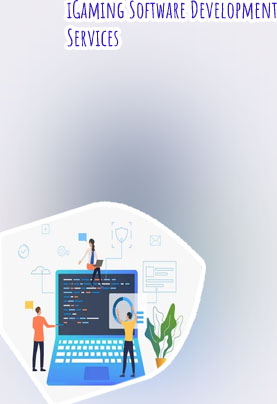|
When it comes to developing software for the iGaming business, it's important to stay updated on the latest trends, technologies, and best practices. In order to help companies in this industry stay ahead of the competition, we have curated a list of two articles that provide valuable insights and solutions for iGaming business software development.
Top 5 Technologies Shaping the Future of iGaming Software Development

The iGaming industry is rapidly evolving, thanks to advancements in technology that are shaping the future of software development. Here are the top 5 technologies that are driving innovation in iGaming:
-
Blockchain Technology: Blockchain is revolutionizing the way transactions are carried out in iGaming platforms. Its decentralized nature ensures transparency and security, making it ideal for online casinos and sports betting sites.
-
Artificial Intelligence (AI): AI is being used to personalize the gaming experience for players by analyzing their preferences and behavior. It also helps in detecting fraudulent activities and providing customer support through chatbots.
-
Virtual Reality (VR) and Augmented Reality (AR): VR and AR technologies are enhancing the immersive experience of online gaming. Players can now enjoy realistic environments and interact with virtual objects in real time.
-
Mobile Gaming: With the rise of smartphones and tablets, mobile gaming has become extremely popular. iGaming software developers are focusing on creating mobile-friendly games that offer seamless gameplay on the go.
-
Live Dealer Games: Live dealer games bring the thrill of a physical casino to online players. Thanks to advancements in streaming technology, players can now interact with real dealers in real time.
10 Best Practices for Developing Secure and Scalable iGaming Business Software
In the rapidly evolving landscape of iGaming, implementing robust security measures and scalable software solutions is paramount for success. By adhering to best practices, companies can ensure their platforms are secure, reliable, and able to handle increasing demands from players worldwide.
One key practice is the use of encryption technologies to protect sensitive data such as payment information and user accounts. Encrypting data both in transit and at rest helps prevent unauthorized access and ensures confidentiality. Additionally, implementing multi-factor authentication can add an extra layer of security, requiring users to verify their identity through multiple methods.
Another crucial practice is regular security audits and penetration testing to identify and address vulnerabilities. By proactively testing their systems, companies can stay one step ahead of cyber threats and protect their assets from potential breaches. It is also important to stay updated on the latest security trends and technologies to continuously improve the security posture of the iGaming platform.
Practical Use Case:
One iGaming company implemented these best practices for developing secure and scalable software and saw a significant decrease in security incidents. By prioritizing security measures, the company was able to build trust with players and partners, leading to increased customer satisfaction and ultimately higher revenues.
|

